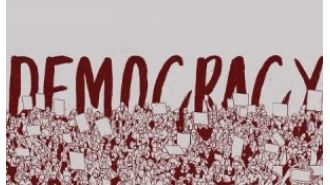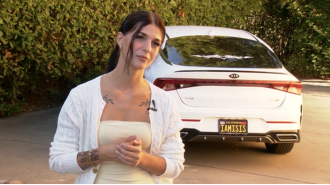Looking ahead into the 2020s
When I think of the biggest problems we face as humans, I break the population into two groups.
The first group focuses most of its energy on finding ways to provide for the basic necessities. Nearly 5 Billion people out of the 7.95 Billion people on this planet fall into this bucket. They live on less than ten dollars per day. Of this group, around billion started this decade living on less than two dollars per day and are classified as people living in “extreme poverty.”
It is important to start with a broad strokes understanding of the realities that the global population faces. Most people on the planet (~60%-70%) live in poverty. And, yet, it is likely very few, if any, of the people you are related to are likely to fall in this bucket. So, underestimating the grip of poverty on the global population is completely understandable. We just aren’t exposed to it often enough to comprehend it.
The second group is the group we – and most folks we call relatives or friends – fall into. We, as a group, are blessed with the privilege that accompanies either being born in a wealthy (by global standards) zip code or to parents with healthy genes. In most cases, our privilege is likely a combination of both.
As a result, we have the luxury to spend our time worrying about problems that don’t involve finding ways to provide shelter or food for those we love.
Again, it matters that we internalize the impact of this privilege simply because we spend very little time talking or reading about it. To a girl born in the slums of Mumbai, the odds of having the kind of life you or I have are near zero. No amount of mental fortitude or ingenuity will compensate for the lack of privilege.
Of course, I exaggerate when I say “no amount.” But, not by much. The odds of making it out of poverty (never mind “extreme poverty”) are near zero.
By the end of 2030, current estimates are that we’ll end up with around 500 million people in “extreme poverty.” While significantly lower than three decades prior, we’ll still be ways off eradicating extreme poverty. While I’d love for us as a race to be focused on eradicating extreme poverty, I think the odds of that happening are, again, near zero.
That’s because the second group is going to be drawn into the many problems created by two realities.
The first is that the climate – different from the weather – on planet Earth is moving toward a state of emergency. In the next decade, we’re going to see this discussion continue to pick up momentum. Along the way, we’re going to hear inaccurate facts, conspiracies, and resistance. It won’t matter if we’re on the right, left, center or whichever other political leaning I haven’t captured. As long as we’re affected by the earth’s gravitational field, we’ll be impacted by the consequences.
Today, even though 97% of scientists working on the climate agree on the problem, we’re not close to mainstream adoption. But, it will follow. It took between twenty and thirty years for scientific consensus around nicotine to become common knowledge. But, that was before the internet. Even accounting for the easy spread of falsehood, I expect consensus on the climate emergency to take shape toward the end of the next decade.
The next fight we’ll be wrestling with will be the complicated relationship between us, our work, and money. The industrial economy was built on drawing a clear connection between labor and money. That happy relationship led to a growing middle class and prosperous times for large portions of the developed world.
However, that relationship has broken. As we saw over and over again in the past decade, a few lines of code can generate more economic value than millions of hours of labor. And, as machine learning became mainstream, we learnt that these lines of code can help reduce the amount of human labor required to produce everything we need for our consumption.
As this relationship between us, our labor, and the money we earn has broken, we’ve seen unhappiness and dissatisfaction soar in the richest places on the planet. When human beings are unhappy, we behave in predictable ways. We turn on people who are different from us, resist change, and elect people who promise to deal with the “others” and promise to make things like they were in the good old days.
But, there’s no reversing the tide.
Add an inevitable economic downturn into the mix and we’re heading into a fascinating decade.
What does this mean for us?
As is the case with humanity, there are reasons to be both optimistic and pessimistic. I choose the former as optimism is a self-fulfilling prophecy.
In the face of all this, my recommended approach tends to be rooted in simplicity and focused on change from the inside out. That means being the change we wish to see. That starts with committing to thinking better, working hard on meaningful problems with optimists who’re focused on learning and challenging our assumptions.
That also means living as sustainably as possible, voting when we can, and not falling into the trap of thinking the problems we see around us are a result of “them.”
In the end, all we have and will have is each other.






